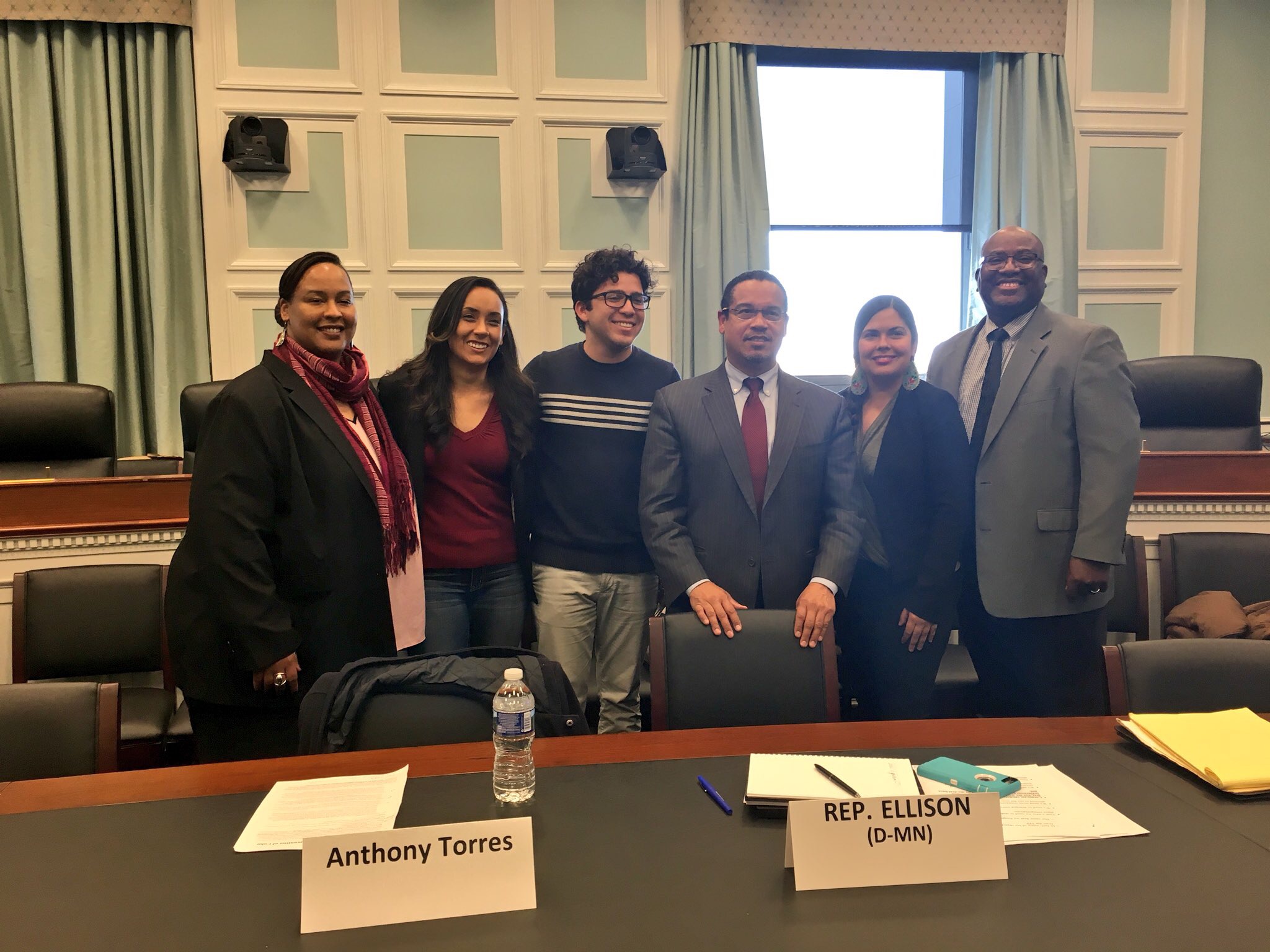As renegotiation of the North American Free Trade Agreement (NAFTA) heats up, now is the time to paint a clear vision for the trade deal’s replacement by centering NAFTA’s oft-excluded effects on the jobs, wages, air, water, and land of communities of color.
Two weeks ago, I moderated a panel hosted by Rep. Keith Ellison (MN-5) on this very topic. The congressional briefing featured Movement for Black Lives, advocates for immigrant justice and indigenous rights, and union leaders, for whom NAFTA’s effects are not theoretical, but tangible and personal. Each speaker told how the corporate trade deal devalues their lives and labor and extracts their resources for the benefit of the few. Click here to watch the video of their powerful presentations.
Erika Andiola, a DACA recipient and immigrants’ rights leader with Our Revolution, detailed how corporations used NAFTA to offshore their pollution to her hometown in Mexico and “dump all their waste in our rivers.” She explained how NAFTA enabled agribusiness giants to bankrupt the livelihoods of millions of Mexican campesinos, forcing many to flee north. Indeed, Erika said that NAFTA is part of the reason that her own family migrated to the U.S.
Michael Smith, a grandfather and member of the BCTGM union, told the audience how he lost his job last year when Nabisco decided to outsource 600 jobs from Chicago’s South Side to Mexico, so as to exploit Mexico’s low wages and environmental standards under NAFTA. Michael said, “Nabisco now wants to sell to our South Side community the very products we used to make.” Nabisco moved Michael’s job to Monterrey, Mexico, where Nabisco workers are now paid about $1 per hour and exposed to toxic chemicals.
Tara Houska, an indigenous rights leader from Honor the Earth, emphasized that it is our native sisters and brothers who bear the brunt of “pipeline after pipeline” under NAFTA. Tara is currently living in a protest encampment in Minnesota to try to block devastation from Enbridge’s Line 3 -- a pipeline project that would pump more tar sands oil from Canada. NAFTA requires Canada to export a steady share of tar sands oil to the U.S. every year, undercutting Tara’s fight.
Colette Pichon Battle, member of the Movement for Black Lives policy table and executive director of the U.S. Human Rights Network, reminded us how “NAFTA impacts are not only seen on the assembly line, but also ripple through our cities’ housing, education, and water crises.” Colette has spent over a decade working for a just recovery from climate disasters ranging from Hurricane Katrina to Hurricane Maria. She explained that from the Gulf coast of Louisiana to Detroit, black and brown communities are seen as sacrifice zones -- ones that bear the costs of toxic trade.
NAFTA has been a disaster for all working people across North America. For communities of color, those impacts have been compounded by systemic racism for decades. We must not perpetuate a story of NAFTA’s effects that erases the struggles of black and brown people across borders. By ignoring NAFTA’s damage to communities of color, politicians like Donald Trump can shift blame to those very communities, stoking racism and xenophobia.
Today, we say no more. Our work is to spotlight a NAFTA replacement agenda that is actually rooted in benefits for workers and communities across racial lines -- a truly multiracial movement for trade justice. When we fight for the rights and livelihoods of everyone, everywhere, we win. No excuses, and no community left behind.
